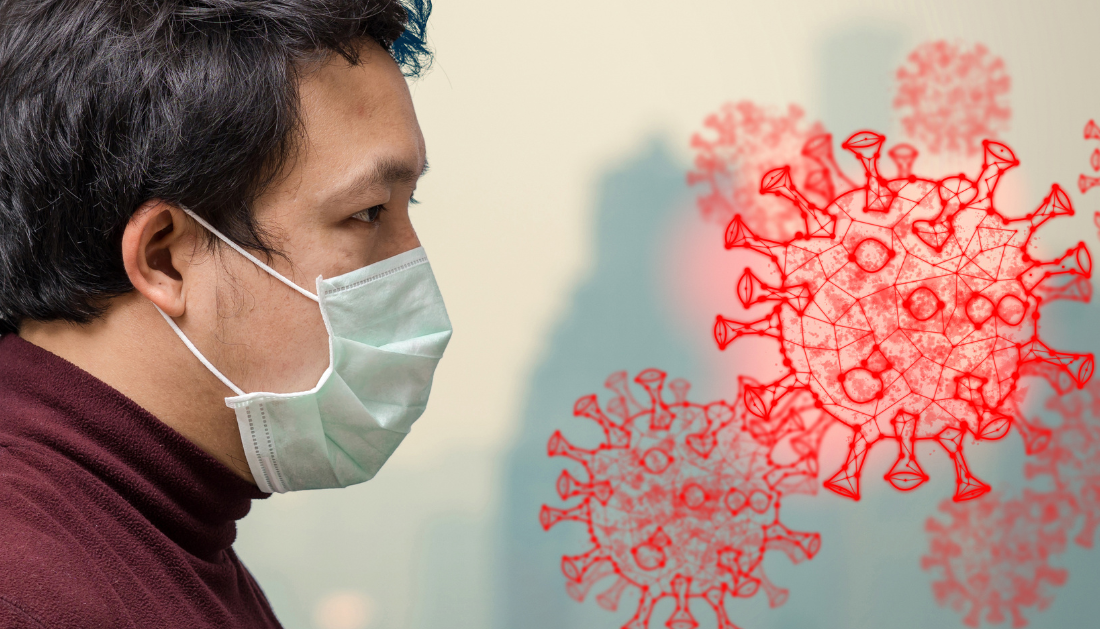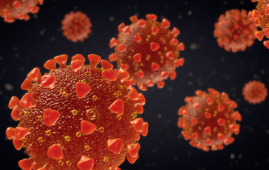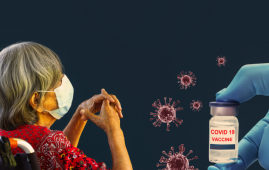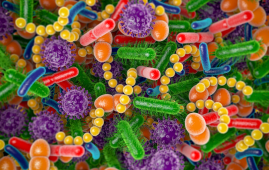

Recent research at Umeå University reveals how natural proteins could revolutionize treatments for COVID-19, autoimmune disorders, and related conditions. These groundbreaking studies, led by Ionut Sebastian Mihai, highlight the protective role of serpins, a type of natural protein, in defending against the SARS-CoV-2 virus.
These proteins act as “gatekeepers,” blocking the virus from entering cells, offering a critical line of defense for our immune system. Remarkably, some individuals naturally have higher levels of these natural proteins, giving them increased COVID-19 resistance.
The research demonstrates that enhancing the levels of these natural proteins could pave the way for new treatments for COVID-19. By focusing on serpins, therapies could be developed to strengthen the immune system, especially in those with lower natural levels of this vital defense mechanism. This discovery provides fresh hope for fighting the virus, reducing infections, and potentially lessening the severity of symptoms.
Beyond COVID-19, this study also explores how natural proteins impact autoimmune diseases like multiple sclerosis and rheumatoid arthritis. Mihai’s work delves into the role of T cells, specialized white blood cells crucial for coordinating the body’s defenses. His findings show that certain “commanders” within T cells regulate their growth and response to infections, making them a vital part of maintaining immune system balance. This insight into natural proteins and T cells could help develop treatments that boost immunity when it’s weak or calm it when overactive, addressing the underlying causes of autoimmune disorders.
The research also investigates how viruses spread in the brain, uncovering immune signals that aid their progression. This understanding could lead to strategies for preventing or treating severe brain diseases caused by viral infections. The role of natural proteins in modulating these processes highlights their importance in maintaining overall brain health.
By tailoring therapies based on a person’s unique genetic makeup and enhancing natural proteins, this research promises advancements in precision medicine. It offers hope not just for tackling COVID-19, but also for managing autoimmune diseases, certain cancers, and chronic conditions linked to the immune system. With the potential to improve COVID-19 resistance and address autoimmune disorders, natural proteins are at the forefront of a medical revolution.
This work, funded by Umeå University and Sartorius Stedim Data Analytics, underscores the transformative potential of natural proteins in advancing health outcomes worldwide.
More Information: Mihai, I. S., (2024) A systems biology single cell approach for querying the differentiation of immune system and antiviral response. https://umu.diva-portal.org/smash/record.jsf?language=en&pid=diva2%3A1909901&dswid=-6955.
more recommended stories
 Study Reveals Cold May Impact SARS-CoV-2 Infection Rates
Study Reveals Cold May Impact SARS-CoV-2 Infection RatesThe Unexpected Protective Role of Rhinoviruses.
 Heart, Lung, & Brain Risks Persist in COVID-19 Survivors
Heart, Lung, & Brain Risks Persist in COVID-19 SurvivorsA French nationwide study reveals that.
 How COVID-19 and Vaccines Differ in Heart Inflammation
How COVID-19 and Vaccines Differ in Heart InflammationA team of international researchers led.
 Long COVID: Extended Paxlovid Treatment Offers Hope
Long COVID: Extended Paxlovid Treatment Offers HopeA new case series by UC.
 RSV Vaccine Response in Immunocompromised Adults
RSV Vaccine Response in Immunocompromised AdultsAccording to Johns Hopkins Medicine researchers,.
 Gut Microbiome Predicts Long COVID Risk
Gut Microbiome Predicts Long COVID RiskIn a recent pre-print study published.
 FasL Inhibitor Asunercept Speeds COVID-19 Recovery
FasL Inhibitor Asunercept Speeds COVID-19 RecoveryA new clinical trial demonstrates that.
 Impact of COVID-19 mRNA Vaccine on Myocardial Scarring
Impact of COVID-19 mRNA Vaccine on Myocardial ScarringA new study found a greater.
 Long-term Cognitive and Psychiatric Issues in COVID-19 Survivors
Long-term Cognitive and Psychiatric Issues in COVID-19 SurvivorsA new study published in The.
 Mental Health and COVID-19: Unequal Impacts in LA County
Mental Health and COVID-19: Unequal Impacts in LA CountyA recent study published in the.

Leave a Comment